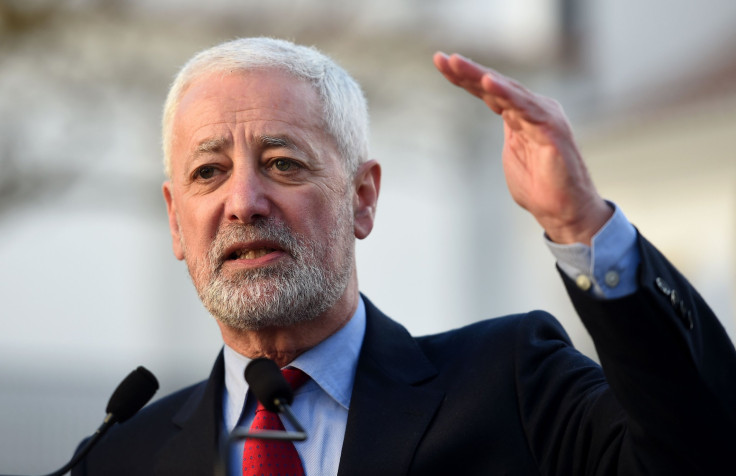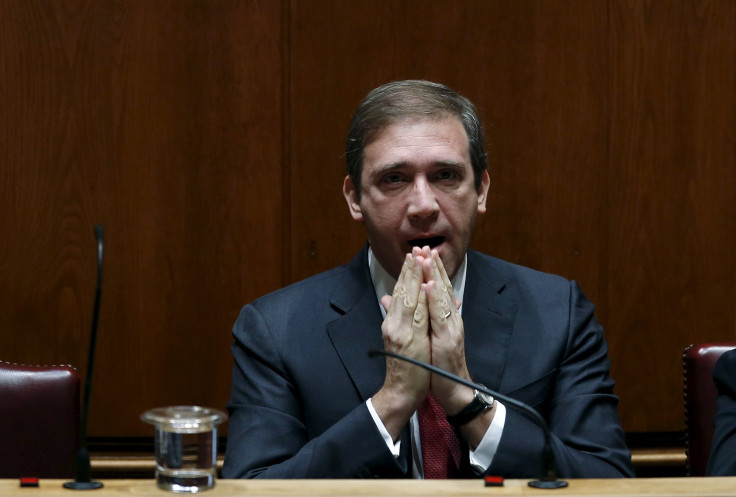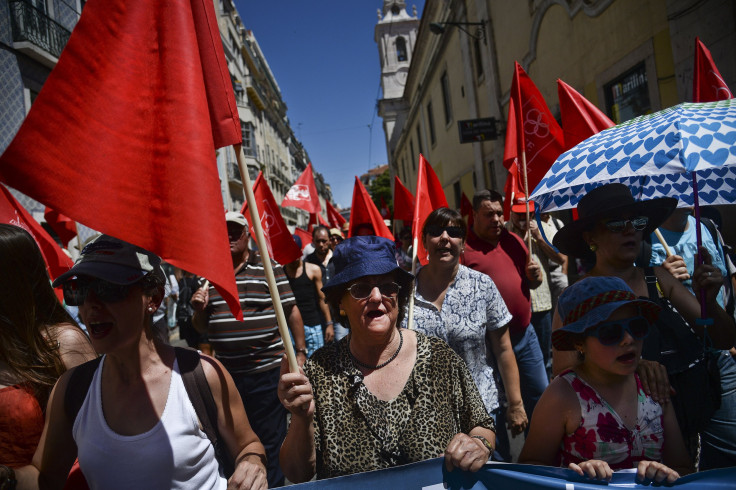Portugal Presidential Election Results: Who Is Marcelo Rebelo De Sousa And Can He Fix The Portuguese Economy?

Daniela Balsinhas Gomes was born and raised on the Azores islands of Portugal, 850 miles out in the Atlantic Ocean — a place known for its fishing enclaves, lush green mountains and blue hydrangea-lined winding roads. With few economic opportunities in the islands' villages, her family scrimped and saved enough for a plane ticket, tuition and room expenses to allow her to leave home one year ago and pursue a law degree on the mainland.
“Portugal has a lot of unemployment and even people with studies are unemployed, so it's hard not to be worried about that,” Gomes, 19, said. “I try to be the best student I can, even though sometimes it's hard, to be able to get more opportunities."
As its citizens battle a specter of deficits, unemployment and slow growth, Portugal is set to vote Sunday for a new president after a campaign season that has focused on the nation's languid economy. The leading candidate, Marcelo Rebelo de Sousa, is a charismatic center-right figure who has promised to serve as a "referee" for the two warring factions in Parliament and help the economy flourish. But after general elections this past fall culminated in a surprising victory for a left-wing coalition running on an anti-austerity campaign, the presidential race is far from certain, and fears are mounting that another unexpected win for an anti-establishment candidate could throw off the nation's delicate recovery.
Ahead of the election, Rebelo De Sousa was leading polls at 55 percent, with his closest rival, socialist Sampaio da Novoa, trailing a staggering 38.2 percentage points, with 16.2 percent support, Reuters reported Jan. 17. Rebelo De Sousa is extremely popular with the public, having spent much of his career as a television personality and lawyer. He is also a former minister of the Social Democratic Party, a center-right political party despite its name, which governed the country intermittently for several decades before the November elections.
Rebelo De Sousa has promised to temper the majority left-wing Parliament while not entirely supporting the austerity policies his party has championed. "Without renouncing my ideas, I’ll try not to discriminate,” he told Euronews Tuesday. “I won’t create any problem, any instability, any criticism of government action. I will try to keep the basis of support for the government intact.”
The presidency is mostly a symbolic role in Portugal, though he or she takes on a leadership role in diplomatic and financial affairs, and can often serve to discourage or encourage foreign investment and European cooperation. The president also has the authority to dissolve parliament and call for a new election.
Portugal's political elite were shocked when a left-wing coalition rose to power in November amid growing discontentment with the ruling party. After the center-right took control of Parliament in a contentious vote, several traditionally antagonistic left-wing parties banded together to oust the elected government after only 11 days in office — the shortest government term since a revolution in 1974.
In the upcoming election, nine other candidates are running for president — a record number for the country — and all except Rebelo de Sousa are affiliated with a left-wing party. They span a variety of ideologies, including communism, socialism and anti-capitalism, but all are united in their opposition to austerity.
“[The population] was feeling the hardship of the past four or five years, and they accused the people in power,” said Zsolt Darvas, a senior economics fellow for the Brussels-based think tank Bruegel.
Portugal was one of the countries hit hardest by continentwide recessions in 2008 and 2011 that sunk the euro and sent national deficits soaring. Along with Ireland, Italy, Greece and Spain, Portugal’s debt became unsustainable, leading the government to accept a 78 billion euro ($88 billion) bailout from European lenders in exchange for higher taxes, lower budgets and slashed pensions.
Many citizens, particularly small-business owners, said the taxes made their lives near-impossible. With value-added sales taxes nearly doubled — from 13 percent to 23 percent — and unemployment high, many residents no longer had disposable income and had to cut back on basic purchases, the Wall Street Journal reported.

At the same time, the country’s economy has made great strides in the past two years, and pro-austerity advocates, including members of the former center-right government, have said austerity policies, spearheaded by the Social Democratic party, are to thank. "The situation is difficult but what Portugal is doing, it is for the future," German Chancellor Angela Merkel, one of the top promoters of austerity policies in the European Union, said in 2012. "The program is being fulfilled by Portugal in an excellent way."
Exports have spiked in the past few years, boosting the percentage of exports as part of GDP to 40 percent. The last time Portugal exported more than it imported was more than 70 years ago, during World War II. Unemployment is also down to around 12 percent, compared with over 17.5 percent in 2013, and economic growth picked up for the first time in several years in 2015.
“The economy is definitely gaining ground — it’s much stronger than last year but it’s not at the level some people would like to see,” said Federico Santi, an analyst for the risk consultancy Eurasia Group in London. He warned that the economy was “still vulnerable to outward shocks.”
The continuing positive trajectory of the Portuguese economy will be determined in part by who is elected president, analysts said. While Rebelo de Sousa's election would not upset the balance of power in the country, a win for a left-wing candidate would, according to João Duque, a finance professor at the University of Lisbon.
Anti-establishment parties such as Podemos in Spain and Syriza in Greece rose to power in the past two years, vowing to dismantle austerity policies. Their election had an immediate negative effect on those nations' economies, causing market instability and scaring off potential foreign investors. Following the announcement of Syriza's win in Greece in January 2015, for instance, the value of the euro dropped immediately, Greek stocks fell 3 percent and the national banks saw losses.
"Things are very quickly changing again," said Duque, citing the efforts of newly elected members of Portugal's Parliament to overturn austerity measures. “If it gives more strength and confidence to the left wing of the government, I’d say that would be very negative for investment and for the Portugal economy.”

Despite the potential uncertainty a left-wing candidate would bring, some voters are skeptical of Rebelo de Sousa's qualifications and said his lack of experience in government could jeopardize Portugal’s future. “He pretty much is only a political commentator,” said Diana Connors, a 26-year-old engineering student in Lisbon. “I don’t think he’s qualified. He thinks running for president is like running for Ms. Portugal.” Connors said she favored Antonio Sampaio da Nóvoa, a socialist candidate who is a prominent professor and intellectual.
Connors has been affected by the recession. She was forced to take a job as a gaming developer after her mother was laid off from her teaching job and given a 400-euro ($435) monthly unemployment stipend. Working to support her mother while paying for her studies and going to class to get a master's has been tough, she said.
“I got completely stressed out, I got completely burned out — it was a lot of things to worry about,” she said Thursday. “I hope it does change."
© Copyright IBTimes 2025. All rights reserved.






















